The Beauty vs the Beast: A Clash of Civilisations?
Adelina Marini, July 9, 2013
In 1993, Samuel Huntington came up with the theory of an upcoming clash of civilisations. In 2013, that clash is a fact in Bulgaria. The clash is between the Beauty and the Beast - between the civilisation of the "beautiful" and the civilisation of the ugly mafia. The political scientist Huntington mentioned for the first time his idea during a lecture which he later developed into an article in The Foreign Affairs. And further on he expands his theory into a separate book. So, in his article for The Foreign Affairs, Mr Huntington states the following: "It is my hypothesis that the fundamental source of conflict in this new world will not be primarily ideological or primarily economic. The great divisions among humankind and the dominating source of conflict will be cultural. Nation states will remain the most powerful actors in world affairs, but the principal conflicts of global politics will occur between nations and groups of different civilisations. The clash of civilisations will dominate global politics. The fault lines between civilisations will be the battle lines of the future".
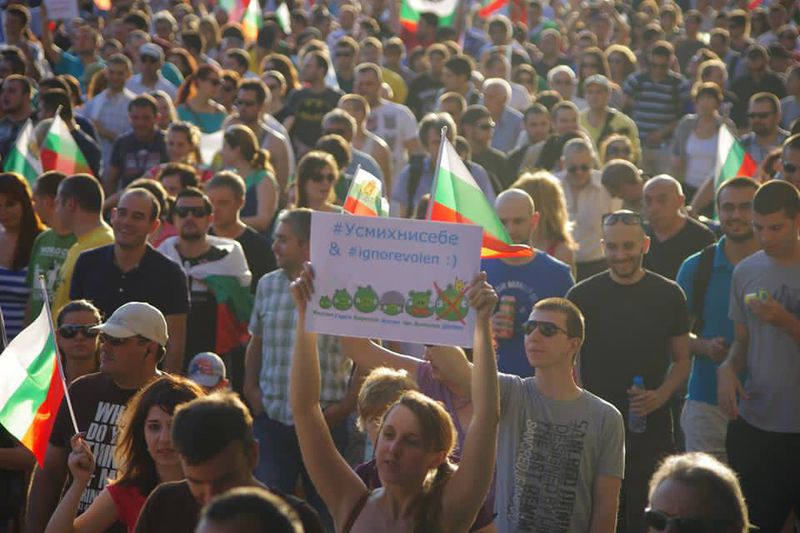
"What do we mean when we talk of a civilisation?", the author asks and answers: "A civilisation is a cultural entity. Villages, regions, ethnic groups, nationalities, religious groups, all have distinct cultures at different levels of cultural heterogeneity. The culture of a village in southern Italy may be different from that of a village in northern Italy, but both will share in a common Italian culture that distinguishes them from German villages".
In 2013, before the 'cultural rebellion' in Sofia, a colleague and Facebook friend shared a comment from the forum of the Capital weekly. A comment that in one way or another has always sounded in my mind, but I found it hard to formulate that clearly and distinctly: "In a city with relatively low migrant presence, to clash with such a different from your culture ... is more than disgusting". It is very difficult to explain to a foreigner, for instance, what exactly is it meant under "culture, different than yours". It is difficult for a person to understand what is it about if they had not lived through the decades long confrontation between the capital city and the country side, the nomenclature vs the rest, officials vs workers, and in the contemporary version - smart and beautiful vs ... what?
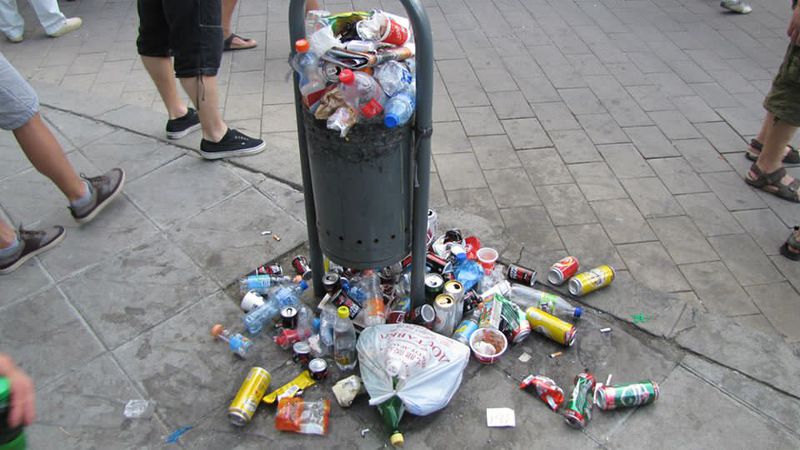
With the conscience that it is not thorough, the explanation could be simplified to the following: the different culture the Capital forum participant is talking about is distinguished by the fact that it does not care whether it takes two parking lot spots while paying for one; it does not care where it throws its garbage; it does not care whether it walks in shit, mud or holes in the streets, you stand in their path and that is why the different culture is pushing to pass through you instead of stepping aside with a smile; the different culture believes that the world owes it; it believes that it has the right to disturb everybody simply because it got power in the country of lawlessness. I can give you tens of examples to describe the different culture, but I guess you got it. You have probably already visualised the representative of that culture with slippers, naked belly, huge (or not that much) chainlet and arrogant look.
The different culture in general does not like order, it adores chalga [morally degrading folk music] and all body feasts to become known by everyone, no matter whether that disturbs them or not, and believes that this is the emanation of individual success - to be able to afford a luxury car, expensive chalga singer (or at least a girl that resembles a chalga singer), to be able to regularly throw serviettes in chalga bars [a recent tradition], to drink expensive liquor and to demonstrate power, any kind of power - financial, physical, cultural. The many laws you violate the bigger and powerful you become. You buy politicians, you establish parties, you buy media, you create opinion leaders and, in general, the uglier the more.
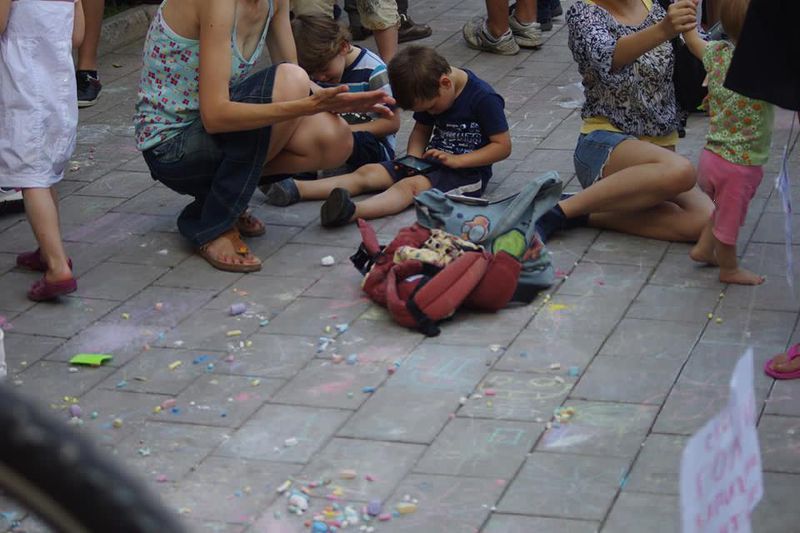
The different culture is so aggressive that when one sees an allien for it subject he/she instantly gets attached to him/her. Like a person who found himself in a hostile camp and met a man of his squad. Precisely because of the 'different culture" and its aggression, the "protest of values" as the rebellion that started on June 14 was called, was often described as the rebellion of the beautiful, the intelligent, the capable, the taxpayers, the middle class, even of the satiated and whatever pops up into your mind that is inherent for the dominating culture in the developed world. All of a sudden, in the streets of Sofia came those who can be defined as anti-chalga - the people with normal clothes (not the chalga uniforms, the silicon and sweat suits), the people who leave their litter in dust bins, those who do not accept the chalga and believe that dialogue should be held verbally not physically. Overall, the people who in Bulgaria for decades we have described as "civilisation", but according to Huntington that was completely wrong.
Not a few analysts, who succumbed to the emotion of seeing so many representatives of their own "class", were quick to put tags on the protest. This automatically caused a response and currently the new line of civilisational clash is along namely those described as "smart, beautiful, charming, intelligent, etc." and the others, who is not clear why are they against. In the social networks, media and Internet fora you will frequently see the words "beautiful, intelligent, charming" used with sarcasm, even disdain, as if being beautiful, successful, intelligent and capable is insulting. As a matter of fact, this is also part of the different culture which, when I was going to school in the then still totalitarian Bulgaria, it was insulting to be an outstanding pupil.
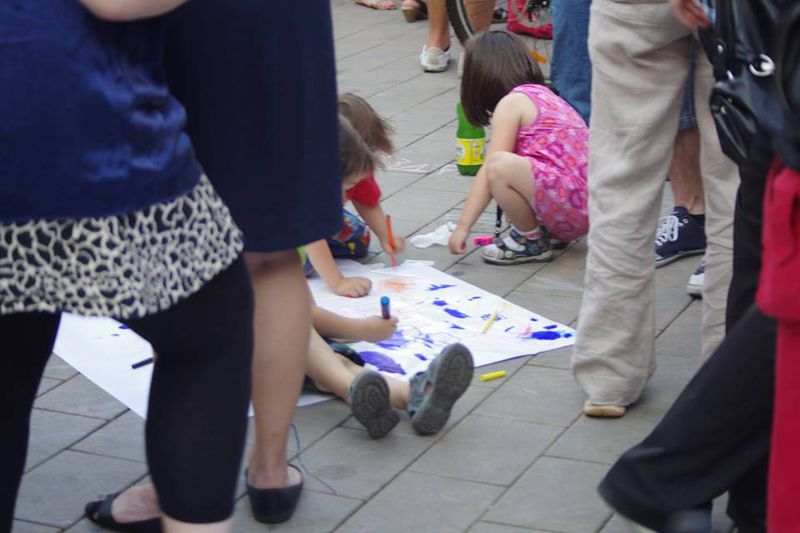
It was much cooler to be part of the villains, the rebels, because this was perceived as some kind of a rebellion against the system. But today, too, being an excellent student bears the same negativism as the word "gypsy". The division line between the "beauty" and (let's put it for shortness and originality) the "beast" is inexplicable, given that the beauty is fighting for the following things:
- kicking the mafia and oligarchy out of government, economy and society;
- undertaking a genuine fight against corruption and organised crime until the complete victory over these two economic, social and political curses;
- cleaning the media environment of manipulation;
- cleaning the electoral process of trade, manipulation, fraud and throwing into fear;
- fighting racial, gender and any other intolerance;
- cleansing of the political parties from oligarchs and normalisation of the political process.
In other words, the protesters want to live in a "normal" country. Normal after the perceptions that dominate in the richer part of the EU. They are very quick in recognising by the face and isolating the provocateurs who are inserted in their protest - people, who as an investigation of the Bulgarian National TV showed, against 15 euros gather in front of the headquarters of the "nationalistic" party Ataka to simulate a counter protest. And while the "beauty" is protesting waving positive slogans, creative placards, carrying their children and avoiding like a devil the incense someone to contaminate the protest, the "ugly" who sell themselves for 15 euros eat pizzas bought by their masters and urinate around the Sofia Opera House, are trying to hinder the protest. Aren't the ugly actually the sisters of the "beauty" who were doing everything possible to prevent her from fulfilling her commitment to the beast? Aren't being ugly those who against a small amount of money (not that a large amount is forgivable) cause clashes in every protest against the civilisation of mafia, chalga, lawlessness and oligarchy?
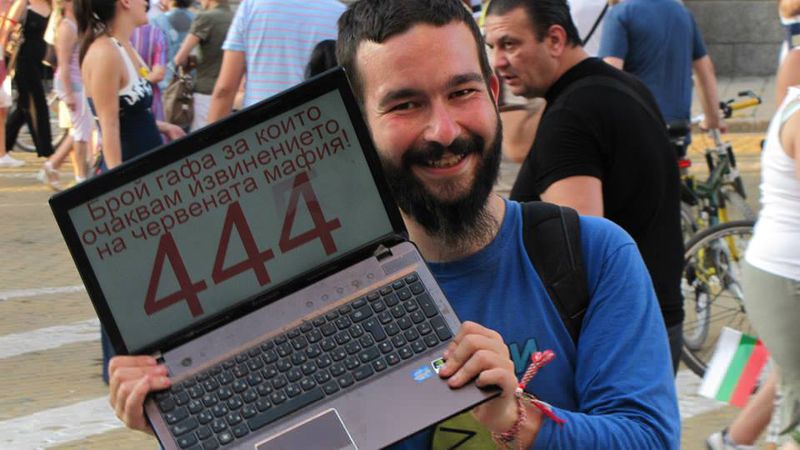
It is inexplicable for me how is it possible people who claim they have been fighting their entire lives for social justice, eradication of poverty and increase of the humiliatingly low pensions, to be avoiding the "beautiful" protest and to speak with contempt about the protesters. Don't we want the same thing? Do you really believe that pensions can be increased when the state and its coffers have been soaked up with oligarchy and when a right of successful business have only the closest to power, while the rest are struggling to stay in the game every day, no matter if they are from the higher tax base or from the minimum wage level? Do the "sarcastic" really believe that it is possible to trust a government that has managed in the most arrogant way, without even hiding as it was doing in the past, to serve the oligarchy, that it can actually ensure an adequate care for the vulnerable and those who don't have?
Are the "ridiculing" convinced that precisely this government, because of part of which the Commission froze EU funds in 2008 and in 2007 it got us in the EU with a safeguard clause and obviously a life time monitoring, will tackle the monopolies that it created itself and will ensure lower electricity bills? Do you really want to play the role of the "ugly sisters" who prevented the "beauty" to challenge the spell and defeat the beast?
Unlike the tale "The Beauty and the Beast", in our civilisational story the beast is not under spell by an evil witch and just a kiss will not reveal his true face which by default is beautiful. The beast believes in our story that "all beauty must die", as Nick Cave sings in that song with Kylie Minogue. The beast has different names - Peevski, Stanishev, Vassilev, Krasteva. And his servants are well known - Barekov, Kevorkyan, Kulezich - to avoid missing someone I will stop naming. Some serve the beast consciously for money, others, I guess, are doing it unconsciously. But it strikes, however, that those who are contemptuous to the "beauty", have leftist political orientation, no matter that among the left leaning there are many beautiful (literally), well dressed and obviously with high tax base people. That is why it will remain a mystery to me why a respected satirist would write in a respected daily with irony that "Protests continue! Beautiful, moving, civilised". As if there is something deeply wrong in people being beautiful and civilised.
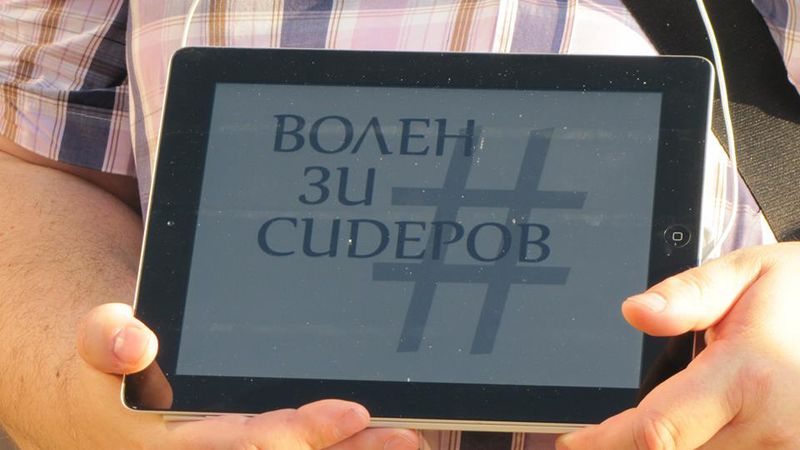
As if there is something wrong in being a taxpayer, to have studied years and continue to study, to have proved yourself professionally and to build a good career, to invest in your children's education, to travel with them and show them how big the world is, to teach them that hatred, violence, spite and aggression are something bad, to teach them to be active citizens, to wave slogans on a tablet instead of being malicious for the successful by calling their rebellion of absolute values "the rebellion of the satiated". As if it is wrong to work 10 hours a day and sometimes more for your future, your taxes and your social contributions. And as if being part of the "beautiful and smart" means that you hate the poor and unsuccessful. Beauty will save the world, I wrote a long time ago when I was hoping that more of us wanted to live in a clean, arranged, prospering country, where my freedom does not mean your torture. Alas, I realise that in Bulgaria, in the past 20 years, the civilisation gap is widening. The class division is already a fact. However, it is not between poor and rich, but between values and anti-values.
Bulgaria is an excellent ground for sociologists, social anthropologists and any other logists who could find a lot of material to investigate the phenomena that divide the Bulgarian society. Phenomena accompanied by heavy feelings of hatred, intolerance and often aggression, moreover in an entirely pure from foreign impacts environment. A real, entirely native clash of civilisations.
This article has been published in Bulgarian on June 24th.
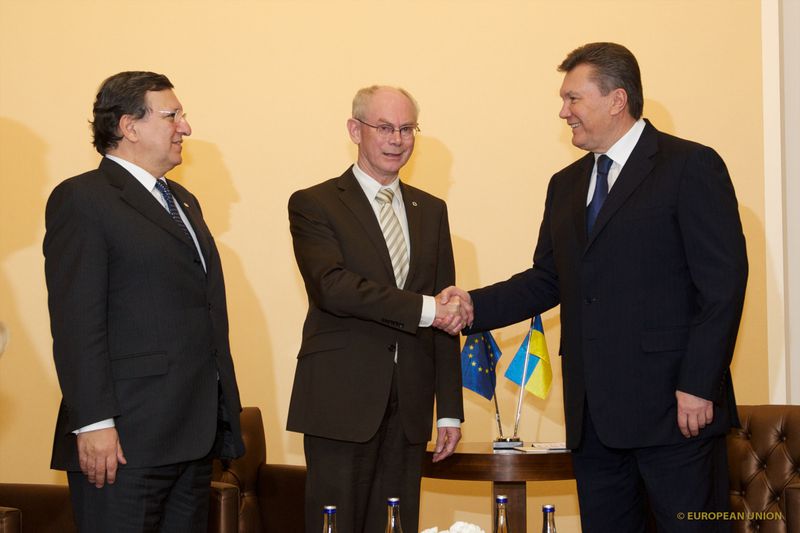 Jose Manuel Barroso, Herman Van Rompuy, Viktor Yanukovych | © Council of the EU
Jose Manuel Barroso, Herman Van Rompuy, Viktor Yanukovych | © Council of the EU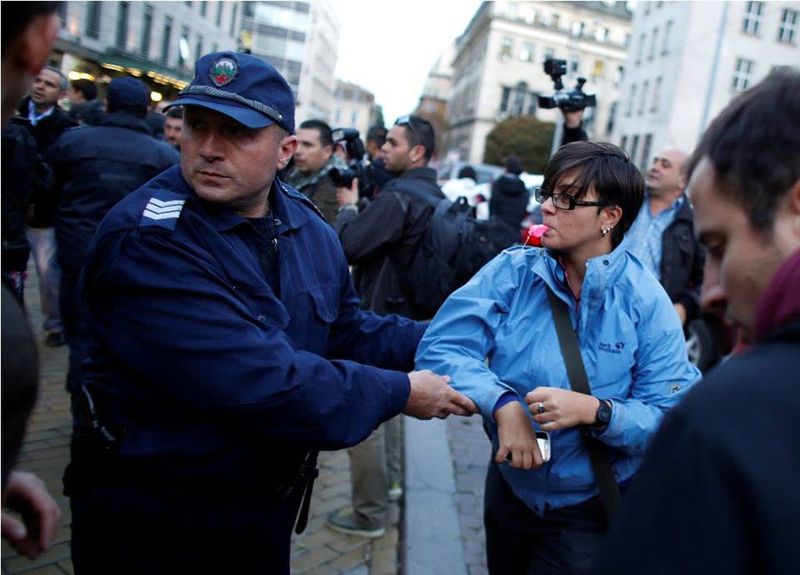 Magdalina Guenova | © Magdalina Guenova
Magdalina Guenova | © Magdalina Guenova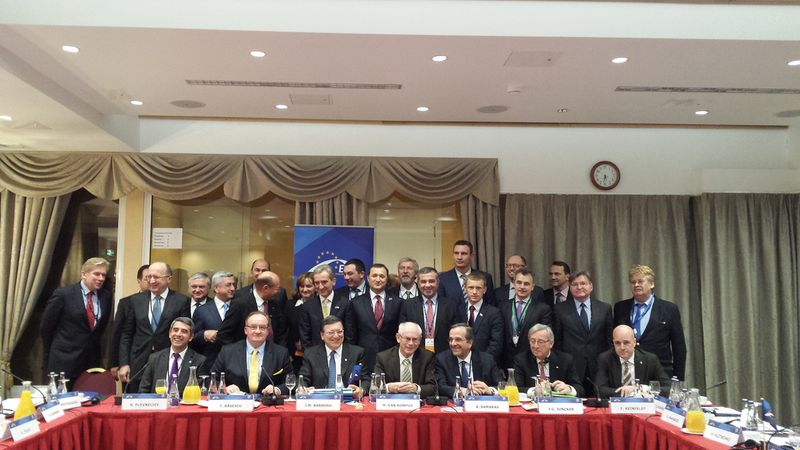 | © EPP
| © EPP